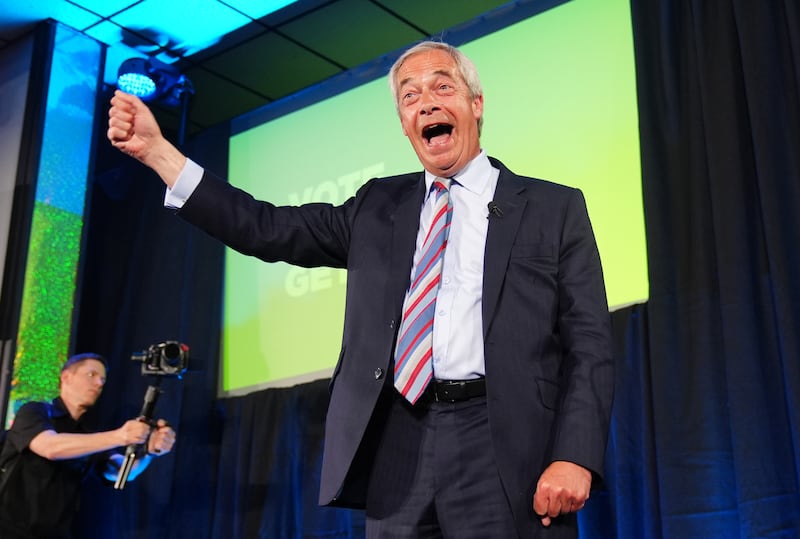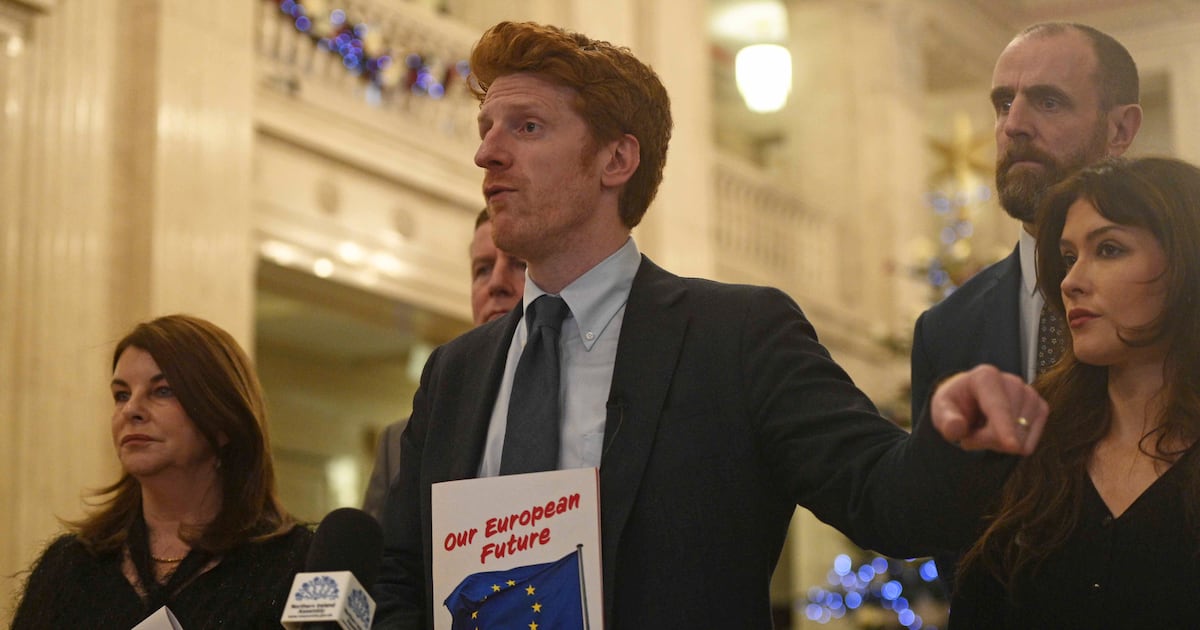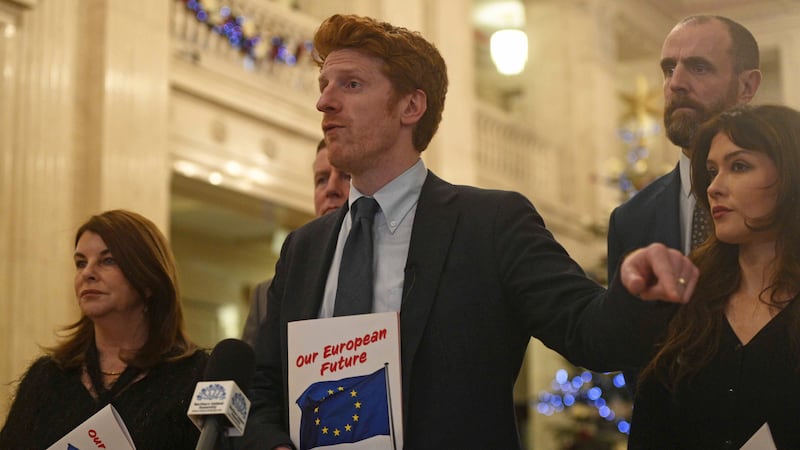The SDLP had great hopes for its assembly motion on Monday, which declared that “Northern Ireland’s best long-term future will be achieved by re-joining the European Union, an outcome that the people of Northern Ireland can only decisively effect via a vote for a new Ireland”.
The motion was widely publicised by the party in advance, much of it through warnings that Britain is heading for a dark, Faragist future.
This synthesised and affirmed the SDLP’s pro-European nationalist position.
Although the party denied it, the motion was also intended as a trap for Alliance. If it is also pro-European, how could it vote against?
So it is notable the debate was a distinctly low-energy affair, with most other parties treating it almost as a joke.
Partly this was about rivals not wanting to give credence to the SDLP, but there was also a sense of Brexit slipping into the past.
There is less and less appetite across Stormont to keep pushing it back up the agenda.
The obvious cynicism of the motion did not help.
It opened by welcoming the improving EU-UK relationship under Labour, but of course the SDLP does not welcome this because it is undermining the Brexit-based case for a united Ireland.
Hence the attempt to re-energise that argument by warning of Nigel Farage in Number 10.
 Nigel Farage and Reform UK are riding high in the polls (Owen Humphreys/PA)
Nigel Farage and Reform UK are riding high in the polls (Owen Humphreys/PA)
While it is true Reform is soaring in the polls, Labour will be in office for at least another four years. Among the many things that may change in that political aeon is Europe turning to the right.
On the day of the Stormont debate, Poland confirmed the election of a ‘patriotic conservative’ president.
The Republic has never had a left-wing government, and a united Ireland would not change the left-right balance of the electorate. The Irish left is also instinctively Eurosceptic.
The SDLP deserves credit for trying to find an argument for unification beyond blood and soil nationalism but a progressive future in Europe is hardly the slam-dunk it assumes.
The second aspect of the motion’s cynicism, its trap for Alliance, was neatly side-stepped by the centrist party.
Alliance proposed an amendment noting there is a second route back into the EU for Northern Ireland, via the whole UK rejoining.
Then it scolded the SDLP for turning re-join into a divisive constitutional argument, instead of building a cross-community pro-EU consensus.
This predictably infuriated the SDLP. Matthew O’Toole, the party’s assembly leader, is particularly outraged by any idea Alliance defines the ‘respectable’ middle ground.
SDLP MLA Cara Hunter gave the game away by complaining that Alliance is “on the fence” and “perceived as the good guys”.
Alliance’s amendment failed because nobody else would support it for various reasons. The SDLP’s motion then failed because Alliance abstained.
Amusingly, registering an abstention at the assembly involves voting both yes and no, a metaphor for the centrist cakeism that drives O’Toole up the wall.
 SDLP MLA Matthew O’Toole
SDLP MLA Matthew O’Toole
Losing the motion was a pointed reminder to the SDLP that winning over Alliance is the key to winning anything: there are still more unionists than nationalists at Stormont.
Despite the prospect of a rare and finely-balanced victory for unionism, the DUP sent only 20 of its 25 MLAs to the debate. Fewer than half the Sinn Féin members turned up and over half the UUP MLAs were also missing.
Sinn Féin and the DUP have been informally boycotting these SDLP ‘opposition day’ debates, so they sent larger delegations than usual.
Nevertheless, it looked as if everyone had casually agreed to let unionism win by default, a final sign of contempt for the SDLP and indifference to the motion.
Although the DUP is far from indifferent to Brexit, it needs to carefully turn down the heat on an issue that has caused it nothing but disaster.
The party satisfied itself on Monday by mocking the bad blood between the SDLP and Alliance as a falling out between “rigorous implementers”.
Sinn Féin shares the SDLP position on a united Ireland in Europe but plainly sees little threat of the SDLP owning the issue.
Its tone throughout the debate was very much ‘yeah, whatever’, suggesting it also sees Brexit becoming steadily less relevant to nationalist voters.
The lesson for the SDLP is the last one it wants to draw.
Brexit’s fading importance shows nationalism cannot depend on external shocks to advance its cause.
It has to refocus on building support within Northern Ireland, and that is difficult to do – perhaps even fundamentally impossible – while attacking the brand of politics Alliance represents.
If you have an opinion on the issues raised in this article and would like to submit a Letter to the Editor to be considered for publication, please click hereLetters to the Editor are invited on any subject. They should be authenticated with a full name, address and a daytime telephone number. Pen names are not allowed.



